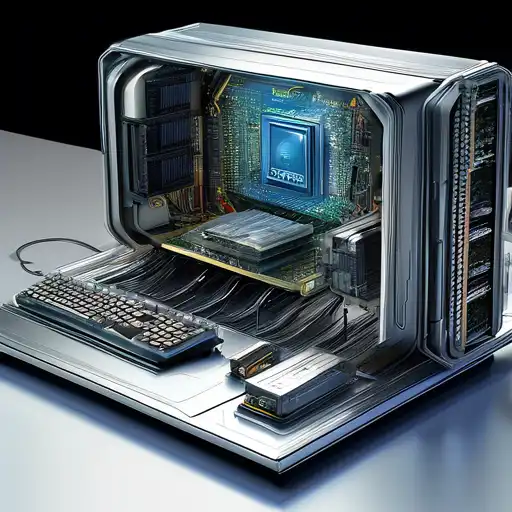Introduction to the Evolution of Computer Hardware
The landscape of computer hardware design is undergoing a transformative shift, driven by the relentless pursuit of efficiency, performance, and sustainability. As we look towards the future, it's clear that the innovations in hardware design will not only redefine our computing experiences but also how we interact with technology on a fundamental level.
Key Trends in Future Computer Hardware Design
Several key trends are poised to dominate the future of computer hardware design. These include the rise of quantum computing, the integration of AI in hardware development, and the push towards more sustainable and energy-efficient designs.
Quantum Computing: A Leap into the Future
Quantum computing represents a significant leap forward in processing power and speed. Unlike traditional computers that rely on bits, quantum computers use qubits, allowing them to perform complex calculations at unprecedented speeds.
AI and Machine Learning in Hardware Design
Artificial intelligence and machine learning are playing increasingly pivotal roles in hardware design. From optimizing chip layouts to predicting hardware failures before they occur, AI is set to revolutionize how hardware is developed and maintained.
Sustainability in Hardware Design
As environmental concerns take center stage, the push for sustainable hardware design has never been stronger. Manufacturers are exploring new materials and recycling methods to reduce the environmental impact of electronic waste.
Energy Efficiency: A Priority
Energy efficiency is becoming a top priority in hardware design. Innovations in low-power processors and renewable energy sources are making it possible to create devices that are both powerful and environmentally friendly.
The Role of Customization and Modularity
Customization and modularity are becoming key factors in hardware design. Consumers are looking for devices that can be easily upgraded or repaired, reducing waste and extending the lifespan of their technology.
Modular Smartphones and Computers
Modular designs, such as those seen in some smartphones and computers, allow users to replace or upgrade individual components without needing to purchase an entirely new device.
Conclusion: The Path Forward
The future of computer hardware design is bright, with innovations that promise to enhance performance, sustainability, and user experience. As we continue to push the boundaries of what's possible, the next generation of hardware will undoubtedly transform our digital world.
For more insights into the latest trends in technology, check out our articles on future tech and sustainable design.
